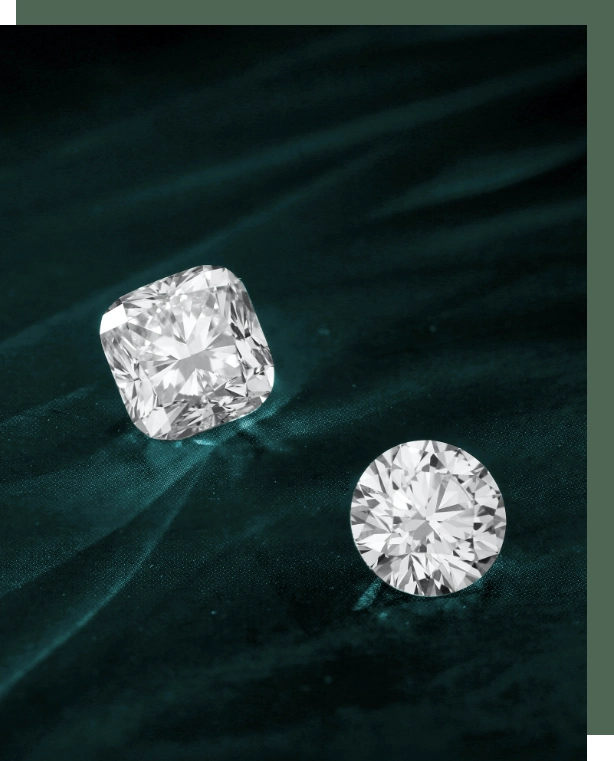
Sustainable Jewelry
We recognize the importance of sustainability in the jewelry world and are dedicated to contributing to a more environmentally responsible industry. Explore our efforts to make each piece of diamond jewelry not only beautiful but also eco-friendly. Delve into our sustainable practices in jewelry design and our commitment to using ethically sourced materials.

Clarity & Eco-Conscious Luxury
At Diamond Lab, we hold transparency as a core value, ensuring that our customers understand the foundation of our actions: we aim to create a positive influence on all whom we connect with while also relishing our appreciation for life’s finer aspects. As humans, we may not be flawless, but we consciously endeavor to source, produce, and fabricate in a manner that aligns with our ultimate objective of making a meaningful difference in the world. As we evolve and expand, our commitment to this goal only grows stronger.

When you choose Diamond Lab, you:
- Empower the aspirations of a European small business, locally owned and operated.
- Back a brand dedicated to promoting transparency within the jewelry sector, consistently prioritizing sustainability in our operations while selecting only the finest materials available, despite not yet reaching 100 percent perfection.
- Champion fair labor conditions across Europe, as well as within our global network of suppliers and manufacturers.
- Stand up for social responsibility by advocating for traceability in the diamond trade, combating unethical mining practices that negatively affect both people and our environment.
Sustainable Precious Metals
In line with our dedication to environmental stewardship, our gold jewelry is primarily made from recycled precious materials. Since these recycled metals are purified back into their original elements, they maintain the same high quality as freshly mined metals. Present disruptions in the supply chain might impact the availability of recycled precious metals. Nonetheless, our brand remains steadfast in our commitment to sourcing recycled materials whenever feasible.
Make A Positive Impact Without Compromising Quality
We believe in the harmonious coexistence of sustainability and quality. The era of outdated fast fashion is over; we’ve entered a new age, and we aim to pave the way for a luxurious, conscious lifestyle. As a result, we prioritize quality in every decision we make, such as crafting all of our products in our family-owned workshop. By emphasizing quality over quantity, we’ve chosen not to maintain a large inventory. Each of our pieces is made-to-order, ensuring minimal waste in terms of space, energy, and resources. Although this approach may lead to longer wait times for orders, we never cut corners, make compromises, or lower our standards. As such, every customer of our brand can expect the finest sustainable jewelry without forgoing the luxury they deserve.
As such, every customer of our brand can expect the finest sustainable jewelry without forgoing the luxury they deserve.
Ethical Engagement Rings: Sourcing Ethical Diamonds
Discover the crucial role of the UN’s Kimberley Process in establishing a global network for ethical diamond trade, advancements in tracing a diamond’s ethical origins, and how selecting a lab-grown diamond can guarantee a completely ethical ring.
What is the meaning of an ethical diamond?
How the Kimberley Process combats the unethical diamond trade?

Ethical Lab-Grown Diamonds
A lab-grown diamond is a guaranteed ethical option for your engagement ring or any piece of jewelry. Lab diamonds are created in a controlled laboratory environment that replicates the natural process of diamond formation, which usually occurs within the Earth’s mantle over billions of years. Considered 100% real diamonds and identical to natural diamonds in every way, some jewelry buyers see the option of a lab diamond as an obvious choice – not to mention, they are typically 60% to 80% less expensive due to the efficiency of their production.
Increasingly, lab diamonds are being created using solar energy, which is an exciting advancement in the jewelry industry.
